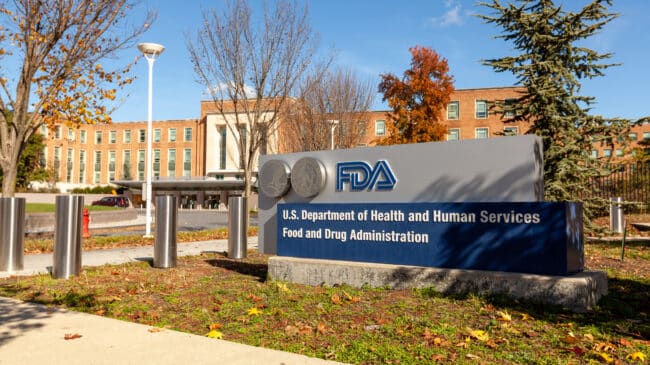Sensational coverage has emerged in the wake of a U.S. Food and Drug Administration advisory commission’s criticisms of MDMA as a potential pharmaceutical to treat mental health conditions.
“It was a harsh public reckoning over the drug’s future and a deflating moment for those involved in psychedelic research,” wrote National Public Radio (NPR).
“The agency’s staff analysis suggests that approval of the illegal drug known as Ecstasy for treatment of PTSD is far from certain,” noted The New York Times.
However, this sensationalism is unwarranted. Although the FDA’s regulatory approach to pharmaceuticals is notoriously difficult to navigate and could be improved, the MDMA trials have proceeded much like the trials for other drugs and existing FDA procedures could allow for its successful introduction to the market, such as drug labeling that ensures both patients and doctors understand the risks of a particular treatment.
Over the past several years, MDMA, a street drug better known as “ecstasy,” has emerged as a promising potential treatment for certain mental health conditions, especially post-traumatic stress disorder (PTSD). The FDA fast-tracked the approval process for MDMA in 2017 by designating it as a “breakthrough therapy” because the regulatory agency recognized the unique potential of this drug to be an effective treatment.
A nonprofit called the Multidisciplinary Association for Psychedelic Studies (MAPS) was an early sponsor of clinical trials for this drug before spinning ownership of the drug’s prospective commercial applications into a new corporate entity called Lykos Therapeutics. MAPS and Lykos have worked over the past several years to complete Phase III clinical trials assessing the effectiveness of MDMA under FDA supervision. The trials were completed last year and showed promising results, with participants receiving MDMA being twice as likely to recover from PTSD than participants receiving a placebo.
In early June, however, after members of an FDA advisory committee reviewed Lykos’ application to qualify MDMA as a new drug, they voted overwhelmingly that Lykos had provided insufficient evidence that MDMA was an effective treatment for severe PTSD.
The advisory committee brought up a laundry list of hotly debated issues in the scientific literature, such as the difficulty of creating a double-blind study for hallucinogens. Participants tend to know when they have received a psychedelic substance versus a placebo, for instance. However, the design of drug trials is often complicated, and drug sponsors typically must iterate on their design after receiving FDA feedback before winning approval. This is what happened with MDMA, as concerns highlighted by the FDA were addressed through changes to the study design, and the FDA approved those changes. So, although news headlines made sensational claims about the FDA’s advisory committee pointing out flawed trials, the MDMA trials proceeded similarly to trials for other pharmaceuticals.
“It’s almost like this came as a total surprise that this was the study design, when in fact the FDA approved this design,” Natalie Gukasyan, an assistant professor of psychiatry at Columbia University Irving Medical Center, told the British Broadcasting Corporation (BBC).
The advisory committee’s vote could lead to several different outcomes. It could prompt the FDA to reject MDMA as an approved treatment when the agency makes its final decision in August. However, MAPS Chairman Rick Doblin believes there’s still “substantially more than a 50/50 chance” that the FDA will approve the use of MDMA. That’s because the FDA has a process for addressing perceived risks related to new drugs, just as it has a process for consulting on trial designs.
In 2007, the agency launched a program called Risk Evaluation and Mitigation Strategy (REMS) to allow drug sponsors to contract with an administrator who sets forth a clinical workflow for health care practitioners who use the drug in their practice. This program allows for enhanced monitoring of a potentially risky drug and systematic reporting that allows rapid development of usage best practices.
In making its recommendation, the FDA’s advisory committee relied heavily on a report from the Institute for Economic and Clinical Review (ICER), which documented the back-and-forth exchanges between MAPS/Lykos and the FDA on improving the trial design. ICER has just followed up that report with a new report that makes recommendations for how to improve patient safety with REMS if the FDA chooses to approve MDMA as a prescription medication. The new report recommended, among other ideas, that independent organizations rigorously collect data on adverse outcomes and promote best practices.
This new report is important because the advisory committee’s characterization of the ICER report and subsequent media coverage has been the center of intense controversy. Rep. Dan Crenshaw (R-Texas), a veteran and author of federal psychedelic therapy legislation, argued that the FDA’s advisory committee’s talking points in the public meeting relied heavily on an early ICER report, where most of the authors believed there was insufficient evidence for MDMA. “These technocrats think they know better than scientists,” Crenshaw wrote on X.
Crenshaw and other veteran advocates argue that further delays at the federal level will mean lives lost.
Jon Lubecky, an early trial participant-turned psychedelic lobbyist, recounted for the advisory committee his active suicidal behavior before treatment. He credits MDMA for giving him a new lease on life. “Today you will vote on whether my friends live or die,” he said.
Several unresolved scientific challenges in psychedelic clinical trials could take years before a consensus is formed. In the meantime, there is a critical need for access to novel treatments. Reason Foundation has been critical of the pharmaceutical approval process in the past and recommended the agency focus mainly on safety while letting the market evaluate effectiveness. In this case, however, the FDA’s existing processes may be able to address the advisory committee’s worries about the previous tests.

